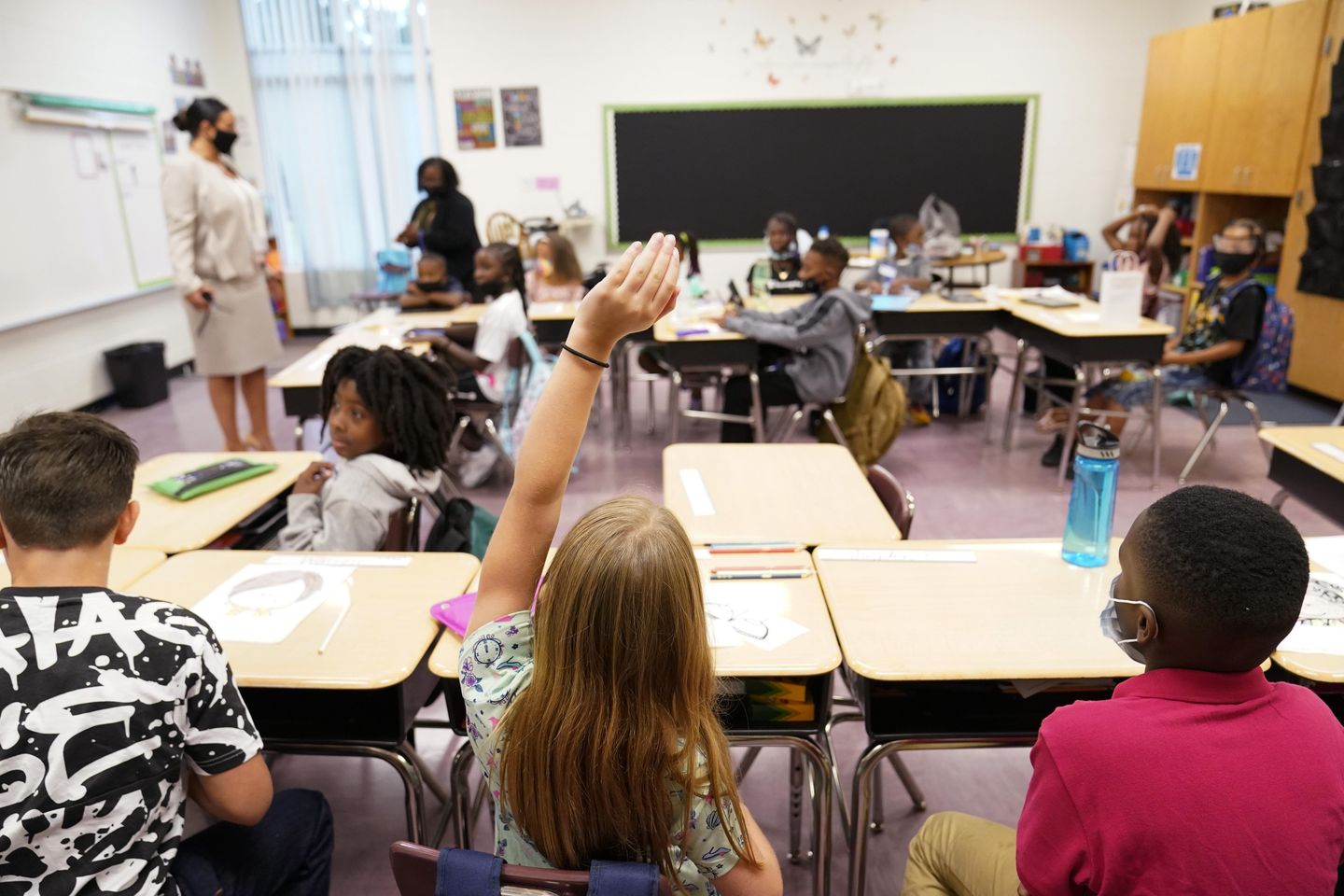
The mega tax and spending bill that President Trump recently signed includes an inaugural federal tax credit for donations to private school scholarship funds serving low-income children.
The provision in the One Big Beautiful Bill Act will let individuals deduct up to $1,700 per year in donations to state-approved nonprofits from their income tax returns starting in 2027.
Qualifying students can use the scholarships to pay tuition and related expenses at the K-12 campuses of their choice.
Twenty-one states, including Pennsylvania, Florida and Arizona, allow similar deductions on state tax returns.
“This legislation promises generational change,” said Norton Rainey, CEO of ACE Scholarships, a Colorado nonprofit distributing private school scholarships to needy families in 12 states. “It will provide thousands of American children, especially those from underserved communities, access to a better future.”
Peter Murphy, a senior adviser to the Invest in Education Coalition, an advocacy group that lobbied for the tax credit, called it “a historic first and landmark victory for American families.”
The National Education Association and the American Federation of Teachers, the nation’s two largest teachers unions, rejected the incentive as a scheme to weaken taxpayer support for public schools.
“Despite some modifications in the Senate, this is an unprecedented and uncapped tax credit that could cost taxpayers over $50 billion a year — nearly double what the federal government spends on helping poor kids and kids with disabilities,” said Randi Weingarten, president of the AFT.
The Trump administration has emphasized that the provision does not touch federal education funds.
“We look forward to seeing how the newly implemented tax credit will expand access to school choice, and we remain committed to supporting initiatives that empower parents and children to choose the educational path that best meets their needs,” said Savannah Newhouse, an Education Department spokeswoman.
The $1,700 donation limit in the legislation weakens an earlier House version that would have let individuals deduct up to 10% of their adjusted gross income, or millions of dollars for wealthier donors, without requiring state approval.
It also adds an opt-in requirement for states and eliminates a provision that would have let corporations deduct up to 5% of taxable income as donations.
“Given the cap on the donation and the fact that the program is now limited to states that opt into the program, the impact won’t be as universal as once hoped,” said Nina Rees, a longtime school choice advocate and former Education Department official in the George W. Bush administration.
Private scholarship officials estimated that the original House bill would have funneled $10 billion a year to 2 million students annually. The Congressional Budget Office projects that just $4 billion in tax credits will be claimed annually under the final version.
Patrick J. Wolf, a University of Arkansas education reform professor, said that could still translate to 1.1 million more students claiming tax-credit scholarships averaging $3,600 a year.
He said that would be up from 1.2 million scholarships, including 217,000 from state tax credits, that nonprofits distributed nationwide during the 2024-25 academic year.
“The new federal program could nearly double the number of U.S. students receiving government aid to enroll in private or homeschool,” Mr. Wolf said. “That’s a big deal.”
According to Private School Review, the average U.S. private school charges $14,903 a year in tuition in 2025, including $13,931 for grade schools and $17,811 for high schools. State averages range from $6,477 in South Dakota to $28,353 in Connecticut.
The Catholic Church, which operates the largest network of K-12 private schools with nearly 6,000 campuses nationwide, has criticized the final version of the Big Beautiful Bill for letting pricey blue states avoid the tax credit.
“The hope was to give parents in hostile states access to school choice,” said Ashling Preston, associate director for government relations for the U.S. Conference of Catholic Bishops. “If your goal is to deliver transformative educational choice to children in all 50 states, allowing a ‘kill switch’ for anti-choice officials to take it off the table is a problem.”
Ms. Preston cited a “rushed process” that led to Senate Republicans removing several items from the final bill, including religious liberty protection for church schools accepting tax credit scholarships to operate free of government control.
The 175 organizations supporting a federal tax credit in the legislation included the U.S. Conference of Catholic Bishops, the Association of Christian Schools International and the California Policy Center.
Officials at the American Federation for Children, a school-choice advocacy group, said how far the new law reaches will depend on how the Trump administration enforces it.
As written, the law would enable families earning under 300% of the median income where they live, or 85% to 90% of all U.S. families, to apply for tax credit scholarships. But several other points remain unclear, including whether the $1,700 tax credit limit applies to one or both spouses in a married household filing their income tax jointly.
“We will continue to fight to ensure that this tax credit scholarship is well-implemented and expanded as soon as possible,” said Brian Jodice, a federation spokesman.












